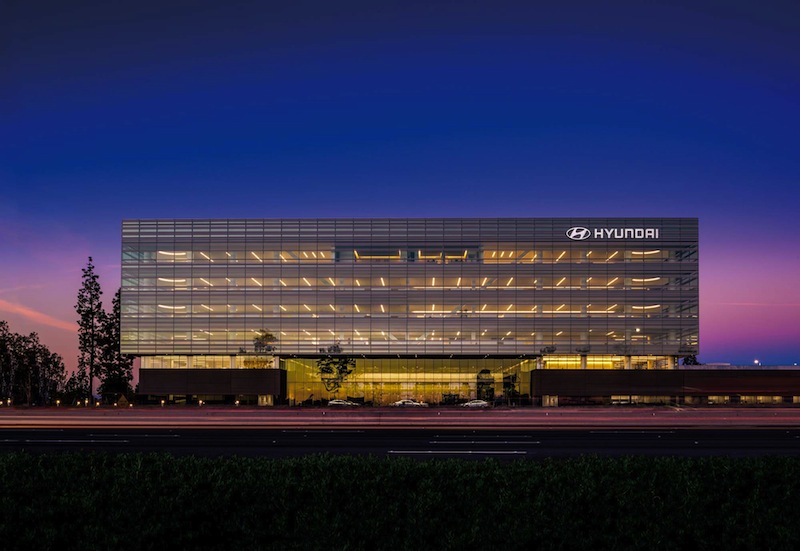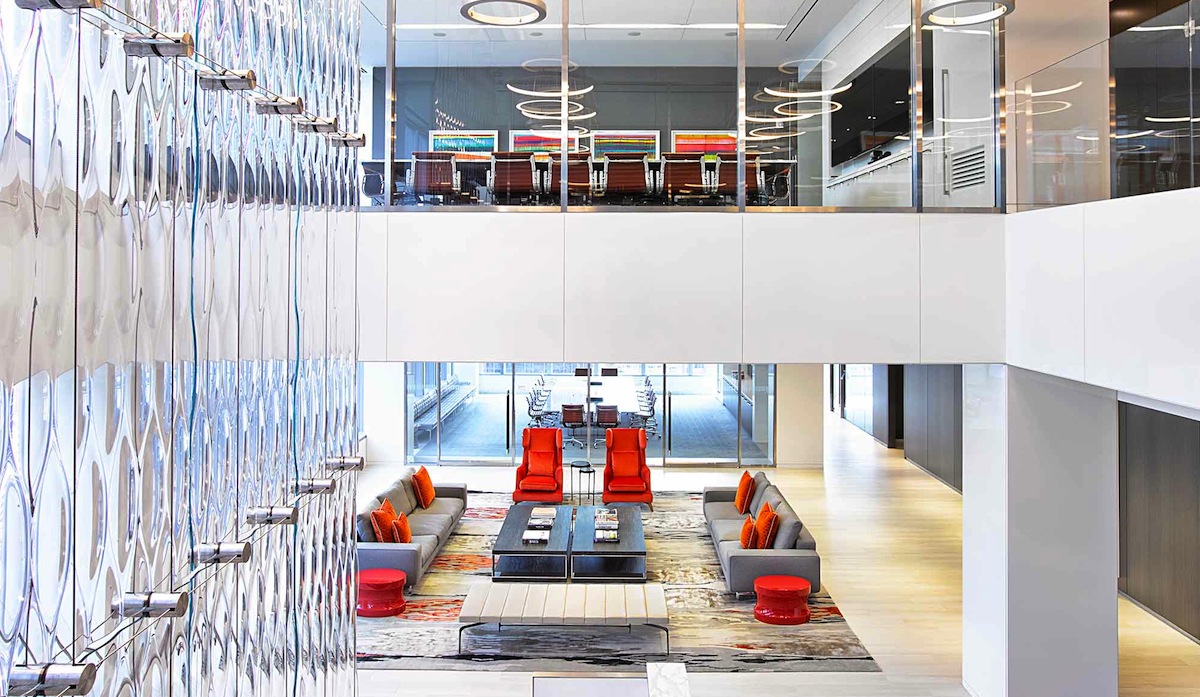This year marks Gensler’s 50th anniversary. As it looks toward the future, the planet’s largest architectural design firm sees a world “on the cusp of breakthroughs made possible by innovation, urbanization, and global connectivity,” write co-CEOs David Gensler and Andy Cohen, FAIA, IIDA; and Diane Hoskins, FAIA, in Gensler’s just-released Design Forecast 2015.
Some of the topics Gensler addresses in its 73-page forecast—such as the role of design in increasingly citified environments, where generational demarcations are not always clear and where technological advances proceed unabated—might sound familiar to anyone who’s been keeping up with current events within the nonresidential construction universe.
However, many other AEC firms are probably thinking about how they should respond to the same megatrends that Gensler identifies as shaping design:
• Workplaces are rethinking the nature of work itself as social media and business networks mesh.
• As more people move into cities, innovation will be the key to pragmatic and affordable approaches to planning.
• If technology is raising the stakes on just about everything, where does the human dimension come in?
• In tackling problems revolving around infrastructure resilience, societies are leaning toward holistic solutions, active management, and stewardship.
• As density becomes the abiding development strategy, developers and owners are attracting the best tenants with rich amenities and transit-served destinations.
• Good data and strong analytics are crucial for keeping up with generational cohorts that are “moving targets.”
Gensler’s Forecast also cites 27 trends that are directly impacting the firm’s three primary practices: Workplace, Community, and Lifestyle. Here’s a sampling:
Commercial office buildings “are less of a stand-alone real estate product and more a part of mixed use.” That use, more often than not, is a combination that goes beyond towers to provide “different scales, and … promote[s] the kind of informal interaction that generates higher retail traffic and evening and weekend activity.”
An organizational imperative for an energy sector that must stay flexible and adaptable in a volatile world “is to align: one brand, mission, purpose, and workforce.”
 Corporate campuses are shedding their stodgy image as disconnected, disparate buildings. By consolidating operations “under one roof,” companies maximize interactions, foster collaboration and innovation, and promote a sense of community. Photo: Hyundai Motor America, Fountain Valley, Calif. / courtesy Gensler
Corporate campuses are shedding their stodgy image as disconnected, disparate buildings. By consolidating operations “under one roof,” companies maximize interactions, foster collaboration and innovation, and promote a sense of community. Photo: Hyundai Motor America, Fountain Valley, Calif. / courtesy Gensler
Technology “disrupts, so tech companies are questioning how buildings work. That means rethinking their performance and exploring innovations like untethered power.”
A burgeoning media sector, despite its equipment-heavy context, is still a creative industry that favors workspaces that are “open, amenity-filled, flexible in relation to new technologies, and capable of being scaled up fast for growth.”
Mass customization will drive product design, as large cities serve as micro-markets for products and innovation hubs that influence broader consumer tastes.
Life sciences companies are replacing traditional labs with technically complex workplaces that support the latest scientific advances, and allow researchers to form interdisciplinary teams for collaboration.
Next-generation aircraft provides a growth opportunity for large, non-hub airports to offer direct international service, city to city, bypassing existing gateway hubs. Global mega-hubs will grow and evolve as leisure destinations with more space dedicated to retail and dining. “Primed by smart devices, the passenger experience will take cues from retail centers and hotels.”
Consolidation, demographic shifts, and new competition are causing “massive” changes in the healthcare sector. Consumers want more choices. Work-based wellness is entering into the healthcare space. And the rise in specialty care centers reflects the movement toward personalized medicine that integrates clinical innovations with tailored care delivery.
What’s differentiating retail centers in an age of online shopping is their engagement with customers and communities. “As retailers’ real and digital worlds converge, the browse/buy function is evolving.” And word of mouth, so important to sales, “is part of the smartphone data that give retailers the bigger picture.”
In a digital era, when an experience that can’t be shared in real time “didn’t happen,” the goal of entertainment projects needs to be to connect with audiences before, during and after the event “so people are engaged and the ROI is higher.”
The hospitality sector is working overtime to be informal and welcoming, by integrating local culture and letting the larger community in whenever they can.
Countries in the Middle East and Asia are competing for which can build the tallest building. But the success of these “vertical cities” will ultimately be measured “by how well they attract and support tenants, and how well they fit with and enliven the city at their feet.”
Gensler foresees tomorrow’s mixed-use towers as anchors for diverse, walkable and transit-served districts.
Read the Gensler’s Design Forecast 2015.
Related Stories
| Aug 11, 2010
Will Alsop to head up new RMJM studio
Will Alsop, the internationally acclaimed British architect and designer of the Glenwood Waterfront project on the Hudson River, is to turn his attention once again to the U.S. after announcing he is to create a studio called “Will Alsop at RMJM,” as part of the RMJM worldwide architectural firm.
| Aug 11, 2010
AECOM, WATG top BD+C's ranking of the nation's 75 largest hotel design firms
A ranking of the Top 75 Hotel Design Firms based on Building Design+Construction's 2009 Giants 300 survey. For more Giants 300 rankings, visit http://www.BDCnetwork.com/Giants
| Aug 11, 2010
Parsons Brinckerhoff, Dewberry among nation's largest multifamily design firms, according to BD+C's Giants 300 report
A ranking of the Top 75 Multifamily Design Firms based on Building Design+Construction's 2009 Giants 300 survey. For more Giants 300 rankings, visit /giants
| Aug 11, 2010
USGBC’s Greenbuild 2009 brings global ideas to local main streets
Save the planet with indigenous knowledge. Make permanent water part of your life. Dive deep water for clues to environmental success. Connect site selection to successful creative concepting. Explore the unknown with Discovery Channel’s best known guide. These are but a few of the big ideas participants can connect to at USGBC’s Greenbuild International Conference and Expo, taking place on November 11-13, 2009 in Phoenix, Ariz.
| Aug 11, 2010
Goettsch Partners wins design competition for Soochow Securities HQ in China
Goettsch Partners (GP) has been selected as the winning firm in the competition to design the Soochow Securities Headquarters, the new office and stock exchange building for Soochow Securities Co. Ltd. The 21-story, 441,300-square-foot project includes 344,400 square feet of office space, an 86,100-square-foot stock exchange, meeting rooms, classrooms, a cafeteria, and underground parking for 400 cars and 800 bicycles.
| Aug 11, 2010
RMJM unveils design details for $1B green development in Turkey
International architecture company RMJM today announced details of the $1 billion Varyap Meridian development it is designing in Istanbul’s new residential and business district, which will be one of the "greenest" projects in Turkey. The luxury 372,000-square-meter development on a site totalling 107,000 square meters will be located in the Atasehir district of Istanbul, which the Turkish government intends to transform into the country’s new financial district and business center.
| Aug 11, 2010
Urban Land Institute honors five 'outstanding' developments in Europe, Middle East, and Africa
Five outstanding developments have been selected as winners of the Urban Land Institute (ULI) 2009 Awards for Excellence: Europe, Middle East, and Africa (EMEA) competition. This year, the competition also included the announcement of two special award winners. The Awards for Excellence competition is widely regarded as the land use industry’s most prestigious recognition program.







